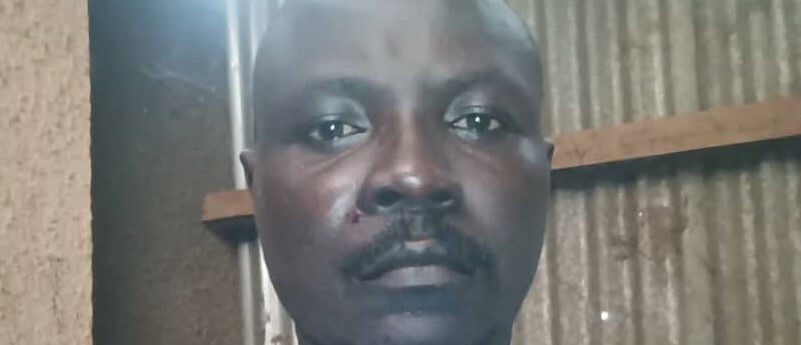A member of the Council of States, the upper house of Parliament, said that he was assaulted and thrown into jail by security forces who he suspected wanted to rob him of 200 USD in Juba.
Okello Ondongtoo Lawiri, who represents Eastern Equatoria State, told Radio Tamazuj on Tuesday night that he had gone to the market to buy food for workers who were fencing his land when he was manhandled by security officers at Hai Referendum.
“Last Sunday (2 July), I went to Hai Referendum, where I own a piece of land that workers were fencing off. I left the site and went to the market to buy food for the workers. I had USD 400 and removed 200 to change to local currency to use for buying items. However, people who claimed to be Criminal Investigation Department (CID) officers appeared and asked me where I got the money (dollars) I was holding,” he said.
“So, I told them they cannot ask me such a question at my age and that I work and quizzed them if someone’s money was lost. They asked me who I was, so I removed my identity card and showed it to them. Another soldier from the Military Intelligence then grabbed my identity card, broke it into two, tossed the pieces away, and started beating me mercilessly,” he added.
“The rest, about six of them, joined in beating me, searched my car, and eventually took me to their station and dumped me in a cell,” Odongtoo continued.
The legislator pointed out that he sent a message to his office and the legal advisor to the Council of States came to the police post which is run by the joint operations unit which comprises the police and military and bailed him out.
“They just wanted to rob the money I was holding. All my belongings were eventually returned to me. Not all the security personnel at the station were bad but a few were terrible. I was in the jail for about 30 minutes and one of the officers saw my official identity card and I was moved out of the jail,” the legislator said. “I have not formally filed a case but our legal advisor and security officer got involved and recovered my property which remained at the station.”
MP Odongtoo said that parliament should follow up on the matter because security personnel are targeting legislators who they blame for not approving their budgets.
“When I identified myself as an MP, one soldier even said that I should be beaten more because lawmakers are eating well and enjoying while refusing to approve budgets for their (security) pay. Parliament does not even make budgets because that is the work of the legislature. The budget has just been brought to parliament,” he said.
“It is my opinion that mine was not an isolated incident but that security operatives are targeting parliamentarians and this is an attack on parliament as an institution. I heard that they were told at their parade at the army headquarters that MPs are sitting on their budget. However, I do not know if this is true. If nothing is done, other MPs will fall victim due to the frustrations citizens are facing because the salaries of the organized forces and civil servants are so small and some earn as little as SSP 1,200 or 2,000 and this cannot feed a family,” Odongtoo added.
The legislator said people have a right to complain but that they should not misdirect their anger because the entire country is grappling with the prevalent economic difficulties and the issue will be resolved with time.
“Violence is not a solution,” he concluded.
Members of the national legislature enjoy immunity under the law.
The South Sudan constitution says no criminal proceedings shall be initiated against a member of the National Legislative Assembly or the Council of States, nor shall any measure be taken against his or her person or belongings without permission from the Speaker of the appropriate House, except where he or she is caught committing an offence for which the police may arrest without warrant.
It further says in case a member is charged with a serious crime, the appropriate House may waive the immunity of the member concerned.




